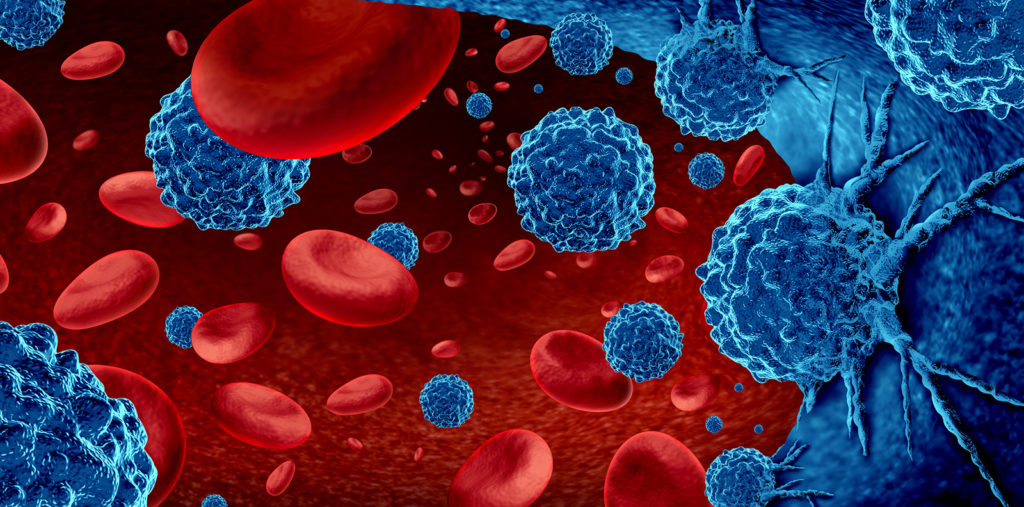
Recently Diagnosed or Relapsed? Stop Looking For a Miracle Cure, and Use Evidence-Based Therapies To Enhance Your Treatment and Prolong Your Remission
Multiple Myeloma an incurable disease, but I have spent the last 25 years in remission using a blend of conventional oncology and evidence-based nutrition, supplementation, and lifestyle therapies from peer-reviewed studies that your oncologist probably hasn't told you about.
Click the orange button to the right to learn more about what you can start doing today.
- You are here:
- Home »
- Blog »
- Multiple Myeloma »
- Multiple Myeloma – Stage 3
Multiple Myeloma – Stage 3

“For the first time ever, (in 2010) a three-drug regimen resulted in a 100% response rate and a favorable tolerability profile in patients with multiple myeloma, according to new findings…”
Multiple Myeloma stage 3 is the most advanced stage possible. I have good news and bad news. The good news is that conventional oncology will almost certainly be able to stabilize your advanced disease. Response to your induction therapy of revlimid, velcade and dexamethasone (RVd- possibly Daratumumab as well), elicits almost 100% response.
The bad news is that you’ve probably been living with pre-myeloma (a SBP, mgus, smm) and then early stages of myeloma for months if not years. You may have been living with symptoms such as bone or joint pain for awhile. Myeloma is difficult to diagnose.
With a diagnosis of myeloma – stage 3, you face several challenges almost immediately in your attempt to manage your incurable blood cancer.
Challenges such as:
- The more toxicity you undergo, the greater the risk of short, long-term and late stage side effects.
- Autologous stem cell transplant – now, later, at all?
- What evidence-based, non-conventional therapies are available?
- Cure vs. Control Debate?
While all newly diagnosed myeloma patients face these same issues, your challenge is to think through each as quickly as possible. By this I mean that patients with less disease, fewer symptoms, less damage, all have more time to learn about multiple myeloma. Patients with more advanced disease have less time to figure things out.
The blog post linked below represent more than 10 years of research coupled with questions and answers from myeloma patients themselves.
- Stage 3 Myeloma Diagnosis w/ Kidney Disease
- Myeloma – Stage 3 – Young
- Multiple Myeloma – stage 3 Heavy Chemo, Heavy Side Effects
- Myeloma Stage 3 Diagnosis-
- Stage 3 Aggressive Myeloma-
- What Is Stage 3 Multiple Myeloma?
- Kidney Failure, Bone Damage- Newly Diagnosed Myeloma
- Velcade/Bortezomib CIPN, Heart, Brain, Muscle Damage
- Myeloma Stats- Kidney, Bone, Deaths
The patient who begins his/her myeloma journey at stage 3 aka advanced disease, is starting in a deep hole. As I say however, oncology has made great strides digging the newly diagnosed stage 3 patient out of that hole.
Unfortunately, digging yourself out of that deep hole required a lot of chemo, a lot of toxic damage to your body. You have stabilized your disease. Great. Now stabilize your immune system with
- anti-myeloma nutrition
- anti-oxidant, anti-angiogenic nutritional supplementation
- evidence-based, non-toxic, non-conventional complementary theerapies such as
In short, heal your body. All myeloma patients relapse eventually. Prepare your body for the next onslaught of toxic chemotherapy.
When I read the essay below written by multiple myeloma specialist Vincent Rajkumar, MD, I almost fell of my chair. I could not believe that a dyed-in-the-wool, conventional oncologist was questioning how oncology practiced myeloma treatment and offering convincing arguments for a less toxic, less damaging therapy plan for newly diagnosed myeloma patients.
Thank you Dr. Rajkumar.
If you have any questions scroll down the page, write a post and I will reply to you ASAP.
Hang in there,
David Emerson
- MM Survivor
- MM Cancer Coach
- Director PeopleBeatingCancer
To gain a complete understanding of Multiple Myeloma Stages – Pre-Myeloma, 1,2,3, restaging and elderly- click now
Treatment of Myeloma: Cure vs Control
“Although not often openly acknowledged, “cure vs control” is the dominant philosophical difference behind many of the strategies, trials, and debates related to the management of myeloma. Should we treat patients with myeloma with multidrug, multitransplant combinations with the goal of potentially curing a subset of patients, recognizing that the risk of adverse events and effect on quality of life will be substantial? Or should we address myeloma as a chronic incurable condition with the goal of disease control, using the least toxic regimens, emphasizing a balance between efficacy and quality of life, and reserving more aggressive therapy for later?
To be sure, if cure were known to be possible (with a reasonable probability) in myeloma, it would undoubtedly be the preferred therapeutic goal of most patients and physicians. But this is not the case. Myeloma is generally not considered a curable disease; however, new definitions of cure have been suggested, including operational cure, which is defined as a sustained complete response (CR) for a prolonged period.1,2 Cure vs control is debated because the strategies currently being tested are not truly curative but rather are intended to maximize response rates in the hope that they will translate into an operational cure for a subset of patients…”

